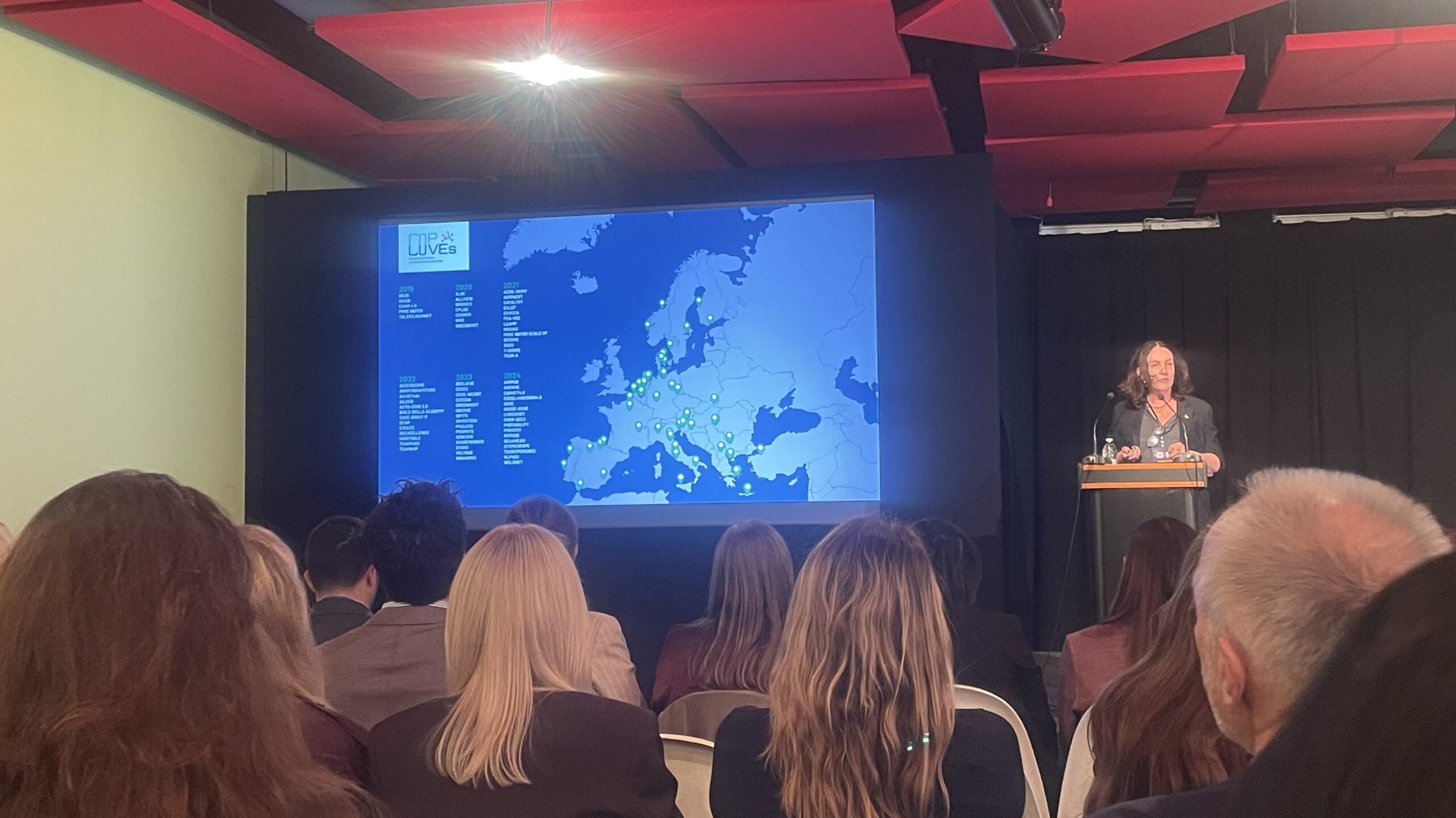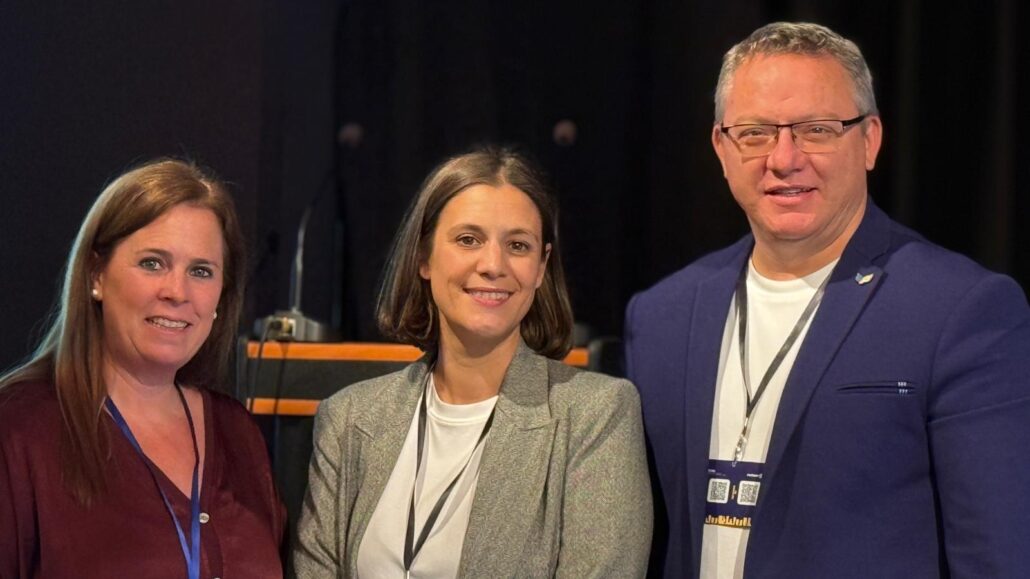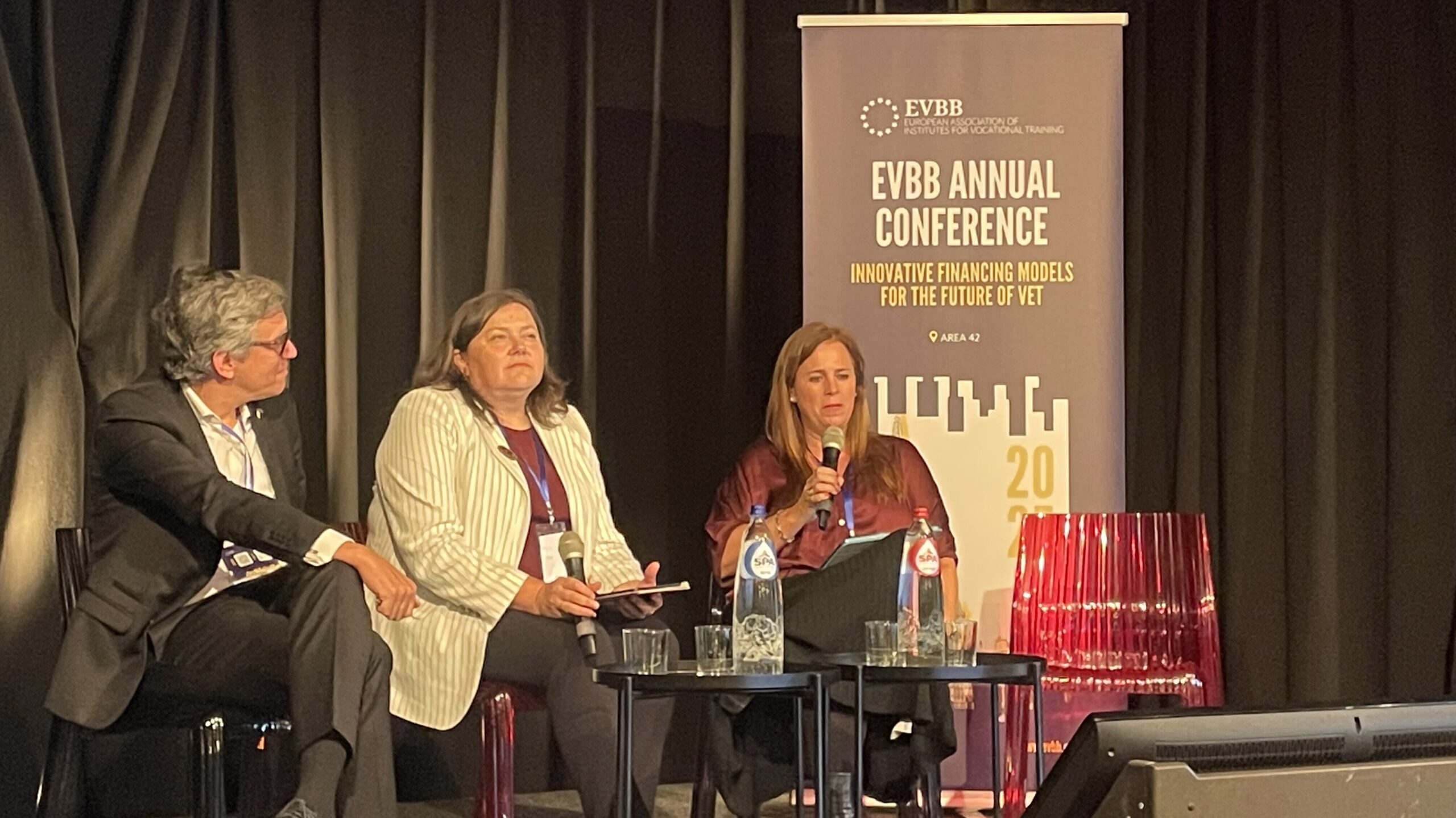


The EVBB Annual Conference 2025 gathered European and international leaders from institutions, governments, training providers, businesses, and investors to discuss one of today’s key challenges: how to finance skills for the future. Against the backdrop of the green and digital transitions, participants explored innovative approaches to ensure vocational education and training (VET) systems are sustainable, inclusive, and resilient.
High-level contributions came from the European Parliament, European Commission, EIB/EIF, governments, and practitioners, with the shared aim of exploring how innovative financing can unlock new opportunities for learners and providers alike.
Investing in Skills, Not Costs
EVBB President Thiemo Fojkar underlined that “investment in skills is not a cost, but a smart choice for Europe”. Secretary General Theodor Grassos called for stakeholders to look beyond Erasmus+ and to embrace diverse mechanisms, including sponsorships and global funding solutions.
From the European institutions, MEP Elena Meleti stressed that VET is not only a pathway to employment but also a driver for innovation. Ruth Paserman (Director for Funds, Programming and Implementation at DG Employment, Social Affairs and Inclusion, European Commission) presented the priorities for the next Multiannual Financial Framework, highlighting the urgent need to address skills shortages, strengthen VET-business links, and leverage public–private partnerships.
Public–Private Partnerships for Skills Ecosystems
Discussions highlighted how public–private partnerships (PPPs) are transforming VET across Europe. Examples included:
- The Dutch model with over 550 PPPs, presented by Miriam Korstanje (Katapult).
- Experiences from Martina Winkler (Enable) and Bart Claes (EPOS) showing the value of linking investment with local employment.
- Centres of Vocational Excellence (CoVEs), which demonstrate the power of scaling PPPs across Europe rather than competing.
These themes resonate strongly with the LCAMP project, coordinated by TKNIKA (Basque Country), which builds sustainable skills ecosystems through innovation, entrepreneurship, and internationalisation.
Financing Human Capital: The Role of EIB/EIF
The EIB/EIF reaffirmed that skills shortages are among the top obstacles to investment in Europe, especially for SMEs and municipalities. With €88.8 billion in financing provided in 2024 alone, the Bank is increasingly investing in education and training through lending, blending EU grants with loans, and advising on capacity building. Concrete projects include modern VET campuses in Finland and inclusive coding bootcamps for women—initiatives closely aligned with LCAMP’s ambition to foster innovation and inclusion in skills.
VET Talks: Global Perspectives
Inspirational “VET Talks” included messages from the ETF, stressing that skills are the world’s most renewable resource, and the World Bank, sharing innovative instruments like voucher schemes in Colombia that improve efficiency and outcomes in financing skills.
National Strategies in Action
One of the highlights was the panel on national strategies, with Inge Gorostiaga (Director of Digital Transformation and Advanced Learning Vice Ministry of Vocational Education and Training, Department of Education, Basque Government), Matthieu Merciecca (French Ministry of Education), and Gunta Arāja (Ministry of Education and Science of Latvia).
- France: Presented the network of 120 Campus des Métiers et des Qualifications.
- Latvia: Showcased structural fund success in advancing VET modernisation.
- Basque Country: Gorostiaga highlighted the Basque VET system, centred on innovation, entrepreneurship, and internationalisation. She presented TKNIKA, the VET Applied Research Centre, and TKgune, a network linking VET centres and companies to facilitate knowledge transfer. Looking forward, the Basque 2030 VET Plan dedicates €65 million to innovation and teacher investment, with digitalisation, the green transition, and internationalisation as its strategic pillars.
The Basque Country’s leadership in LCAMP reinforces this approach, positioning the project as a European reference for sustainable skills ecosystems. Importantly, LCAMP partners from Turkey also joined the conference, underlining the project’s global dimension and the value of international cooperation.
A Collective Call to Action
The EVBB Annual Conference 2025 demonstrated that financing VET is about systems transformation. By combining public resources, private investment, and innovative instruments, Europe can ensure that VET remains inclusive, forward-looking, and resilient.
For LCAMP, the message is clear: building strong public–private partnerships and empowering regions and networks are key to shaping the skills systems of the future.
